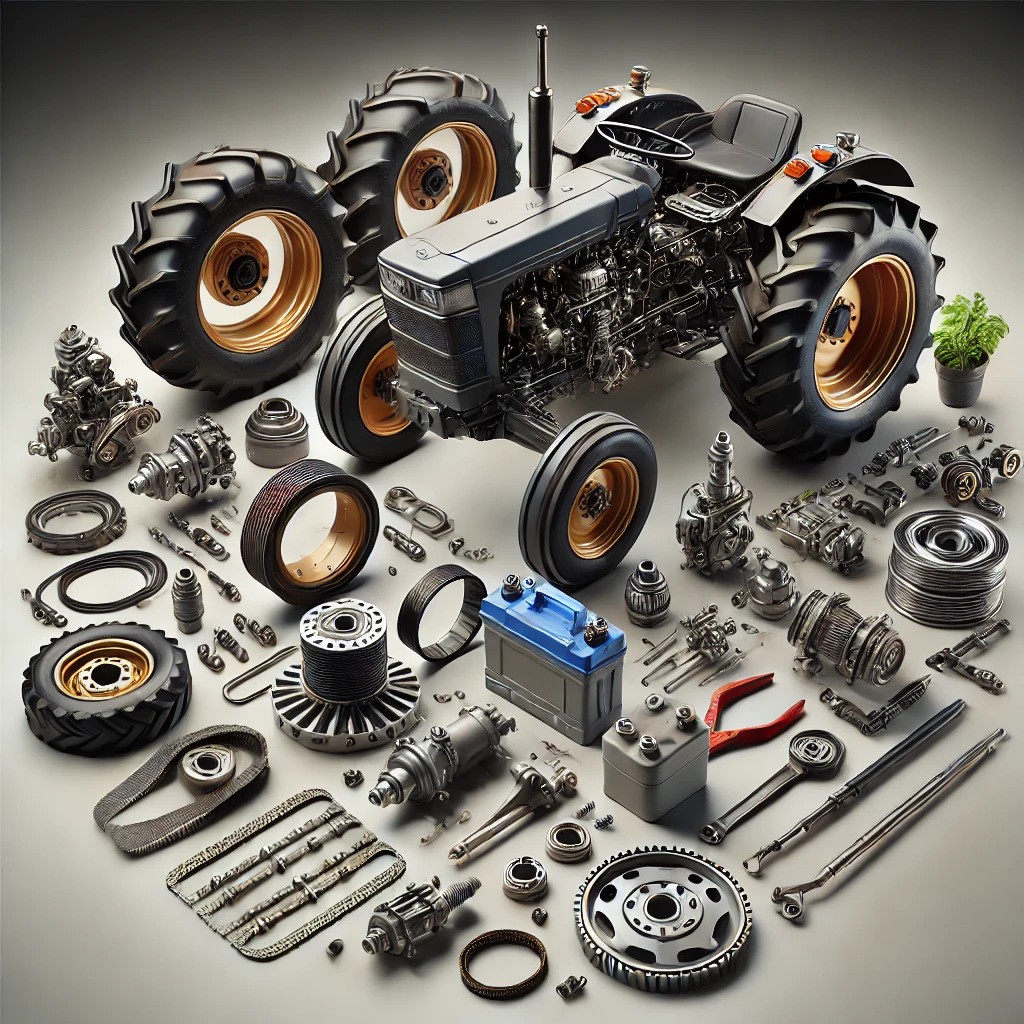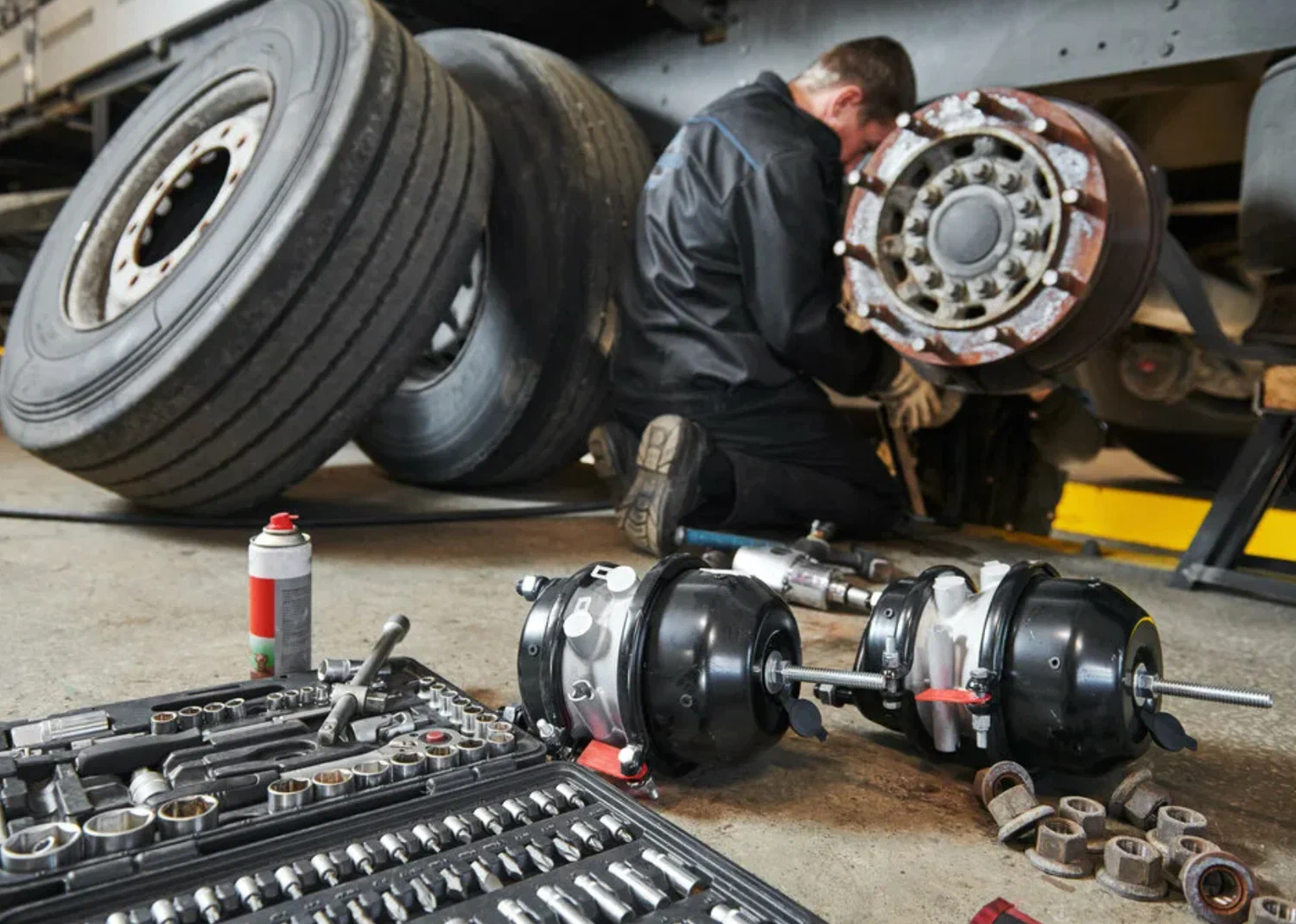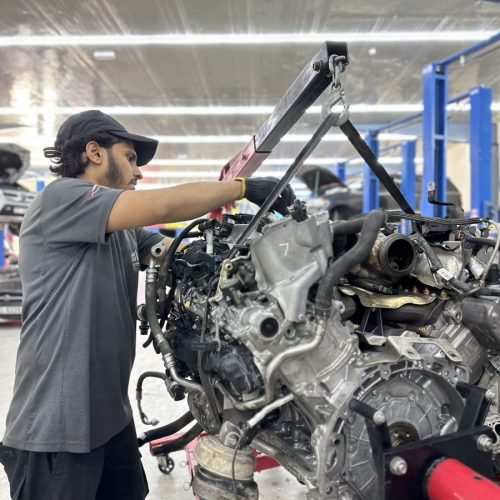Farming is hard work. Whether you’re plowing, harvesting, or hauling, you need a machine that won’t quit. And at the heart of that machine? Reliable tractor parts. Without the right components, even the best tractors can break down when you need them most. That’s why choosing Agricultural Tractor Parts that are built for tough jobs is more important than ever.
In this article, we’ll look at the parts that keep your tractor running strong, how to choose them, and why investing in durable replacements can save you time, money, and frustration in the long run.
Why Tough Parts Matter on the Farm
Your tractor isn’t just another machine—it’s the backbone of your farming operation. Whether you’re running a small family farm or managing hundreds of acres, your tractor gets put through its paces every day.
Here’s why tough parts make a difference:
-
Daily stress: Tractors work long hours in harsh weather and rough conditions.
-
Heavy loads: Whether towing trailers or lifting equipment, the strain is constant.
-
Field wear and tear: Dust, mud, and debris can wear out low-quality parts faster than you think.
Choosing parts designed for durability ensures your tractor can handle whatever your day throws at it—without delays or breakdowns.
Key Tractor Parts That Face the Hardest Work
Some tractor parts are under more pressure than others. These are the components you’ll want to monitor and replace with rugged, field-ready parts when needed:
| Part | Why It Matters | What to Look For |
|---|---|---|
| Engine Components | Power the entire machine | Heat-resistant materials, precise fits |
| Hydraulic Systems | Control lifting, digging, and steering | Leak-proof seals, strong cylinder walls |
| Clutch Assemblies | Transfer engine power to the drivetrain | Wear resistance, heavy-duty linings |
| Brake Components | Keep the tractor safe during operation | Non-slip surfaces, durable pads |
| Tyres and Rims | Keep you moving across all terrains | Puncture-proof, deep tread for traction |
These parts do the hardest work and take the most abuse. If you neglect them, small issues can quickly become costly repairs.
Common Issues Farmers Face With Weak Parts
When you use subpar or worn-out components, your tractor’s performance can drop fast. Here are a few signs that your machine might need better Agricultural Tractor Parts:
-
Hydraulic leaks: Loss of lifting power, slow steering, or lowered attachments.
-
Engine knocking: Dirty filters, failing pistons, or worn-out bearings.
-
Clutch slipping: Trouble switching gears or loss of power to the wheels.
-
Overheating: Clogged radiators, faulty thermostats, or damaged water pumps.
-
Brake failure: Poor response time when stopping or going downhill.
These aren’t just annoying—they can sideline your machine during critical tasks. That’s why early replacement and maintenance matter.
How to Choose the Right Parts for Tough Jobs
Not all tractor parts are created equal. Here’s how to make sure you’re getting the most reliable components:
1. Stick to Trusted Brands
Well-known brands like John Deere, Massey Ferguson, Fordson, and New Holland have a reputation for quality. Look for parts that match your tractor’s model and are made to the same standards.
2. Match the Job
Some tractors are used more for hauling, while others are focused on tilling or spraying. Choose parts that are rated for your kind of work.
3. Go for Reinforced Materials
Heavy-duty parts often use hardened steel, cast iron, or heat-treated alloys. These materials are better suited for extreme pressure and repetitive use.
4. Buy From Reputable Suppliers
Always purchase your parts from suppliers that specialize in Agricultural Tractor Parts. They’ll offer advice, compatibility checks, and often better guarantees.
Maintenance Tips to Keep Parts Working Longer
Even the best parts need care. Use these farmer-friendly maintenance tips to extend the life of your tractor components:
-
Regular inspections: Check belts, hoses, and fittings for cracks, wear, or leaks.
-
Keep it clean: Clean out radiators, air filters, and fuel systems often.
-
Change oil on time: Dirty oil causes friction and damage to engine internals.
-
Grease fittings: Lubricate moving joints and linkages to avoid rust and resistance.
-
Tighten connections: Make sure all bolts, nuts, and clamps stay secure.
By sticking to a simple maintenance routine, your parts will last longer—and your tractor will run better all season.
Real-World Example: Tough Parts on a Tough Farm
Tom, a farmer in Yorkshire, shared his story:
“I run a fleet of older Massey Fergusons. I used to buy whatever parts I could find online, but they’d always give up during harvest. Once I started using reinforced Agricultural Tractor Parts from a proper supplier, things changed. The new hydraulic cylinders haven’t leaked once in two seasons. It’s been a game changer for my downtime.”
Stories like Tom’s are common. The right parts make all the difference.
Recommended Parts Checklist for Field-Ready Tractors
Here’s a sample list of replacement parts farmers often need for tractors that handle tough jobs:
| Part Category | Recommended Replacement Cycle |
|---|---|
| Oil Filters | Every 100–200 hours of operation |
| Hydraulic Hoses | Inspect every 6 months |
| Air Filters | Replace every season or as needed |
| Brake Pads | Check annually |
| Tyres | Inspect tread and pressure monthly |
| Clutch Discs | Every 1,000–2,000 hours |
Always refer to your tractor’s manual for model-specific intervals.
Conclusion
When your tractor works as hard as you do, cutting corners on parts isn’t an option. You need parts built to last—ones that can take on the rough, muddy, dusty jobs and still deliver day after day. Choosing strong, reliable Agricultural Tractor Parts not only improves your machine’s performance, but also saves time and headaches when it matters most.
From hydraulic systems to engine components and tyres, every part plays a role in keeping you productive. Invest in durability, stay ahead on maintenance, and shop from trusted sources. Because when the job is tough, your tractor—and the parts inside—need to be tougher.


